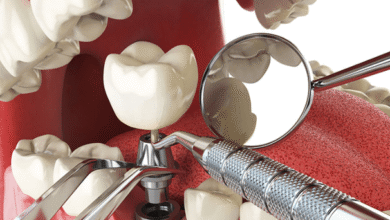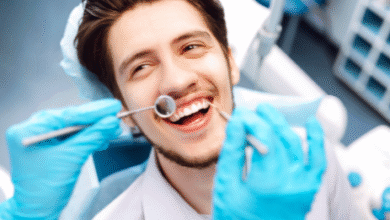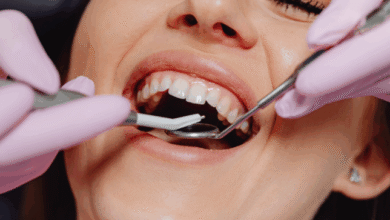Who Can Donate their body after death and Why Age or Illness Isn’t Always a Barrier

Many people assume they’re automatically ineligible for body donation after death because of their age or medical history. These misconceptions prevent countless individuals from making a meaningful and selfless contribution to medical science. The truth is far more encouraging than most realize.
When a person decides to donate my body to science, you might be surprised to learn that acceptance criteria are broader than commonly believed. Programs evaluate each potential donor on an individual basis rather than applying blanket exclusions. Your unique medical history could provide valuable learning opportunities for researchers and medical students.
Common Myths About Age Restrictions
The Notion That You’re Too Old: Perhaps the most persistent myth suggests that older adults cannot participate in donation programs. In reality, there is typically no upper age limit for body donation. Elderly donors provide crucial opportunities for medical professionals to study age-related conditions, from arthritis to cardiovascular changes. The anatomical teaching value remains high regardless of your age at passing.
Why Programs Welcome Senior Donors: Medical schools need bodies that reflect the aging population their students will eventually treat. Older donors help future doctors understand alongside disease progression. Your donation at 70, 80, or even 90 years old serves an essential educational purpose that younger donors simply cannot fulfill.
The Misconception About Being Too Young: Some people worry they might be too young to register for donation programs. Registration is generally open to adults of legal age, though the actual donation occurs only after natural passing. Pre-registering ensures your wishes are documented and legally binding when the time comes.
Health Conditions That May Not Disqualify You
Previous Surgeries and Medical Procedures: Many assume that prior surgeries make them unsuitable candidates for donation. Surgical scars, joint replacements, or previous procedures often enhance rather than diminish educational value. Students benefit from seeing real-world interventions and how bodies heal after medical treatment.
Chronic Illnesses and Ongoing Conditions: Living with diabetes, heart disease, or respiratory conditions doesn’t automatically exclude you from donation. These conditions provide teaching moments about disease progression and treatment effects. Medical students gain insight into how various illnesses affect human anatomy over time, which textbooks cannot fully capture.
Cancer History and Treatment: While active metastatic cancer at the time of passing may present challenges, a history of treated cancer doesn’t necessarily disqualify you. Each situation receives individual evaluation based on current health status and the type of cancer involved. Programs consider whether your donation would serve educational purposes safely and effectively.
Individual Evaluation: The Key to Eligibility
Medical Review Process Explained: Donation programs conduct thorough medical reviews to determine suitability on a case-by-case basis. Your complete medical history gets assessed by professionals who understand both educational needs and safety requirements. This personalized approach means that conditions considered barriers by one program might be acceptable to another, depending on their specific research and teaching priorities.
Why Standard Checklists Don’t Apply: Bodies are complex, and each donor presents unique anatomical features worth studying. A rigid checklist would exclude valuable donations that could advance medical understanding. Programs balance safety considerations with educational opportunity, recognizing that imperfect bodies often teach more than pristine specimens.
Factors That Actually Matter: The primary concerns involve infectious diseases that pose health risks to those handling donated bodies and conditions that severely compromise tissue integrity. Beyond these safety considerations, programs maintain flexibility in their acceptance criteria to maximize educational benefit from each donation.
Conditions That Typically Require Special Consideration
When evaluating potential donors, programs look carefully at specific circumstances rather than applying automatic rejections:
- Active systemic infections like HIV, hepatitis, or tuberculosis require special handling protocols and may affect eligibility depending on program capabilities.
- Severe obesity or emaciation can present logistical challenges, though many programs have adapted their facilities and training to accommodate diverse body types.
- Organ donation for transplant takes priority, and body donation typically occurs only when organs are not viable for transplantation purposes.
- Recent major trauma or autopsy may affect usability, as these situations can compromise anatomical structures needed for educational study.
The Reality of Acceptance Rates
Higher Than Expected Approval: Most people who inquire about body donation and meet basic health safety requirements get accepted into programs. The approval rate surprises many who assumed they’d face rejection. Your unique medical journey provides learning opportunities that benefit future healthcare providers treating similar conditions in their patients.
Regional and Program Variations: Different programs serve different educational missions and research needs. A program focused on surgical training might have different criteria than one specializing in anatomical research. If one program declines your registration, others in your region might welcome your donation.
Removing Uncertainty Through Education
Understanding the Facts Empowers Decisions: Misconceptions about eligibility prevent people from exploring donation options that align with their values. Learning the truth about acceptance criteria helps you make informed end-of-life planning decisions. Your assumptions about being ineligible might be completely unfounded.
Questions to Ask Programs Directly: Contact donation programs to discuss your specific situation rather than self-selecting out based on assumptions. Program coordinators can explain how your medical history fits their needs. Direct communication removes guesswork and provides clarity about your eligibility status and what the donation process entails.
Conclusion
Age and medical history create fewer barriers to body donation than most people believe. Programs evaluate each potential donor individually, recognizing that diverse medical backgrounds provide valuable educational opportunities. Your unique health journey might offer exactly the learning experience medical students need to become better physicians. Take the step to inquire about donation options and discover whether this meaningful contribution aligns with your end-of-life wishes. Contact a reputable donation program today to discuss your specific situation and learn how you can advance medical education and research.





